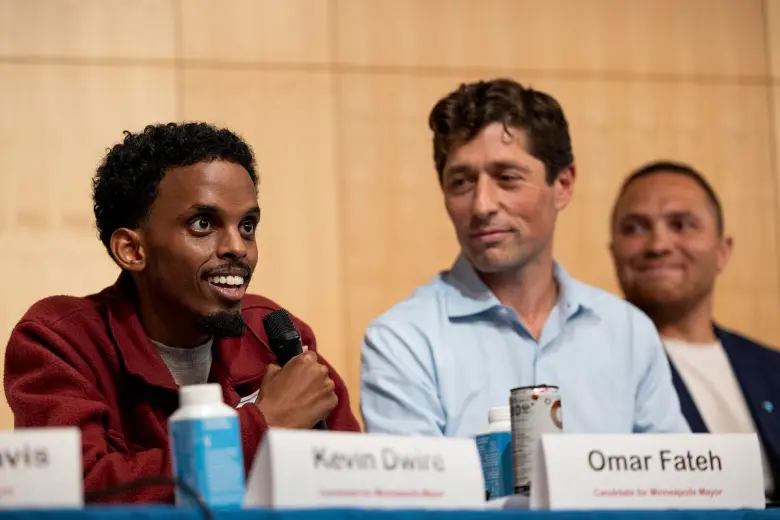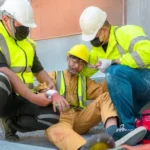Have you ever wondered who shapes the future of Minneapolis and makes the big decisions that affect the daily lives of its residents? That responsibility falls on the mayor. From handling local challenges to guiding growth and development, the mayor of Minneapolis plays a vital role in keeping the city strong and moving forward. Let’s dive into who the mayor is, what their job looks like, and why their leadership matters to every person who calls Minneapolis home.
The Role of a Mayor in a Growing City
At its core, the mayor of Minneapolis serves as both a leader and a representative of the community. The office is responsible for setting priorities, proposing budgets, and ensuring that city services run smoothly. A mayor often acts as the face of the city during good times and in moments of crisis.
Unlike smaller towns where decision-making can feel personal and informal, Minneapolis is one of the largest cities in the Midwest. This means its mayor deals with complex issues such as housing, public safety, economic development, and transportation. The position requires balancing local concerns with broader regional and even national interests.
Minneapolis: A City with a Unique Identity
Before we talk about leadership, it helps to understand the city itself. Minneapolis is not just another urban center—it’s a diverse community with a strong cultural heartbeat. Known for its lakes, parks, and thriving arts scene, the city attracts people who value both natural beauty and urban opportunities.
At the same time, Minneapolis faces challenges like any large city. Issues such as affordable housing, public safety, and equitable economic growth are front and center. The mayor’s role is to navigate these concerns while ensuring that Minneapolis stays true to its identity as a progressive, welcoming, and forward-thinking place.
A Look at the Current Mayor
Right now, the mayor of Minneapolis is Jacob Frey, who took office in 2018. A former civil rights attorney and city council member, Frey brought energy and ambition to the role. His leadership has been defined by efforts to address affordable housing, improve public safety, and guide the city through significant challenges.
One of the most notable aspects of his time in office has been navigating the aftermath of George Floyd’s death in 2020, which sparked a global movement for racial justice. Minneapolis suddenly found itself at the center of international attention. In those moments, the mayor had to manage the balance between listening to community voices, ensuring safety, and pushing for systemic change.
Balancing Public Safety and Reform
Public safety has been one of the most pressing issues during Frey’s administration. Residents want safe neighborhoods, but they also want fairness and accountability in policing. This balance is not simple, and it often leads to debates about how law enforcement should look in the future.
The mayor’s approach has been to call for reforms while maintaining essential services. This includes supporting changes in police accountability and investing in community-driven safety programs. The conversation is far from over, but it highlights the importance of having a leader who can bring different perspectives to the table.
Housing and Affordability
Minneapolis is a city where growth is happening fast, but that growth has put pressure on housing. Rising rents and limited availability make it harder for many residents to find a stable home. Mayor Frey has made affordable housing one of his top priorities.
His administration has worked to expand affordable housing units, invest in rental assistance programs, and push for zoning changes that allow for more housing options. These efforts aim to create a city where people from all income levels can live and thrive. Housing is more than just a roof over someone’s head—it is the foundation for stability and opportunity.

Economic Growth and Opportunity
Beyond housing and safety, the mayor also plays a key role in fostering economic development. Minneapolis is home to major corporations, small businesses, and a growing tech sector. The challenge is ensuring that prosperity reaches everyone, not just a select few.
Mayor Frey has focused on supporting local businesses, especially during and after the COVID-19 pandemic. His administration has worked to help entrepreneurs access resources, promote job growth, and encourage innovation. A strong local economy not only provides jobs but also strengthens the entire community.
Community Engagement and Inclusivity
Leadership in Minneapolis is not just about policies—it’s also about people. The mayor spends a significant amount of time listening to residents, attending community events, and making sure that government feels accessible.
Inclusivity is a core value in the city, and residents expect their leaders to reflect that. By encouraging dialogue and creating space for diverse voices, the mayor helps build trust between City Hall and the people it serves. It is not always easy, but open communication is essential for lasting change.
Challenges Ahead for Minneapolis
Every city has hurdles, and Minneapolis is no exception. Climate change, public safety reform, economic disparities, and housing shortages remain ongoing concerns. The mayor must continue to balance immediate needs with long-term strategies.
At the same time, the city is also full of opportunities. With its vibrant arts scene, innovative businesses, and dedicated residents, Minneapolis has the foundation to keep moving forward. Strong leadership can help turn challenges into opportunities for growth and unity.
Why the Mayor Matters to Residents
Some people may wonder: does the mayor’s work really affect my day-to-day life? The answer is yes. The mayor influences everything from how safe your street feels to whether your rent is affordable. Decisions made in City Hall shape the schools, parks, transportation systems, and businesses that form the fabric of daily living.
Having a strong and responsive mayor means that residents have a voice in how their city develops. Whether it’s responding to crises, pushing for fairness, or championing economic opportunity, the mayor plays a direct role in shaping the future of Minneapolis.
The Future of Leadership in Minneapolis
Looking ahead, the role of the mayor will only grow in importance. Minneapolis is a city in motion, facing national attention and local demands at the same time. Future leaders will need to be adaptable, compassionate, and willing to listen.
Residents will continue to expect their mayor to address urgent issues like safety and housing while also promoting innovation and inclusivity. The city’s ability to thrive depends heavily on having leaders who reflect the values and aspirations of its people.
Final Thoughts
The mayor of Minneapolis is much more than a political figure. This leader acts as the voice of the people, a problem solver, and a visionary for the future. From handling tough challenges to celebrating community successes, the role is both demanding and rewarding.
Minneapolis is a city with a rich history and a promising future. With strong leadership, it can continue to grow while staying true to its values of equity, inclusivity, and resilience. Whether you follow politics closely or not, the work of the mayor impacts your life in ways you may not even realize.
So the next time you think about the mayor of Minneapolis, remember that this role is at the heart of what makes the city thrive. It is about guiding people, solving problems, and building a community where everyone feels they belong.


